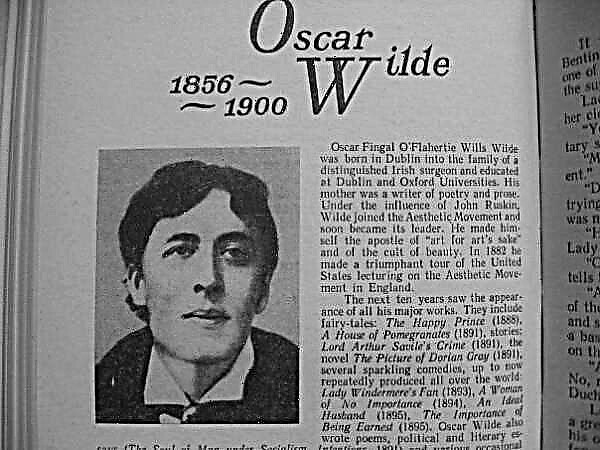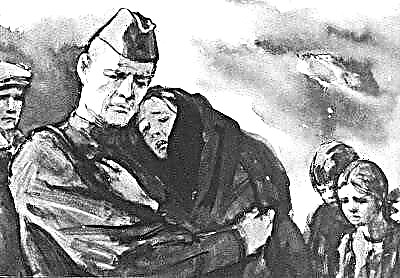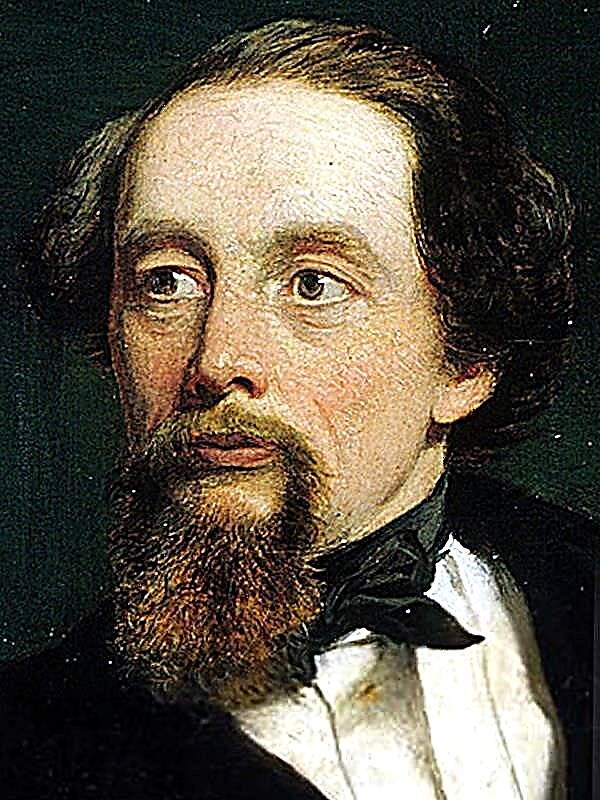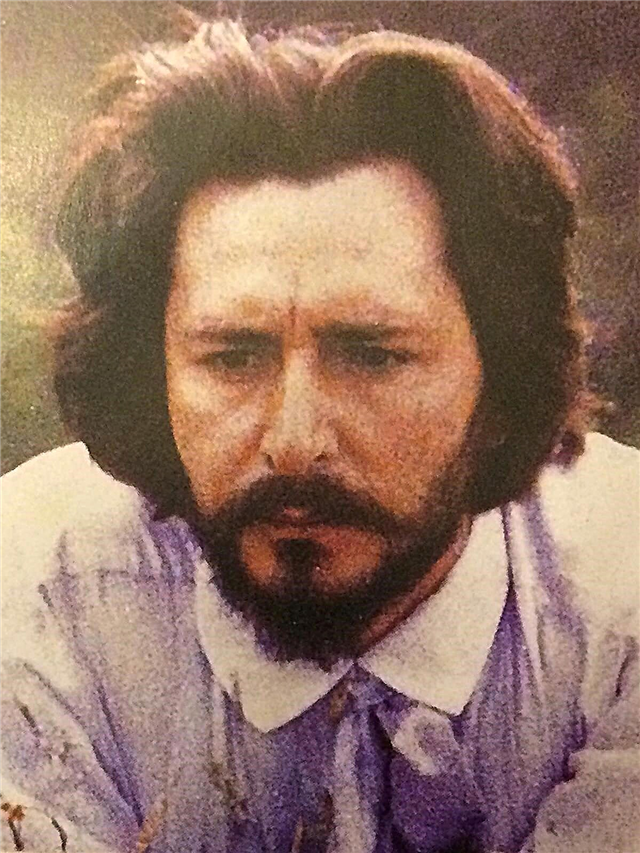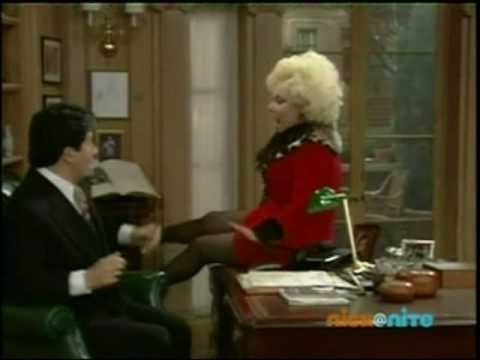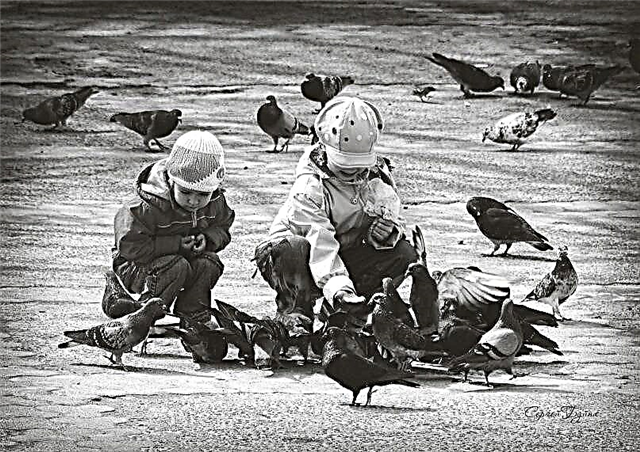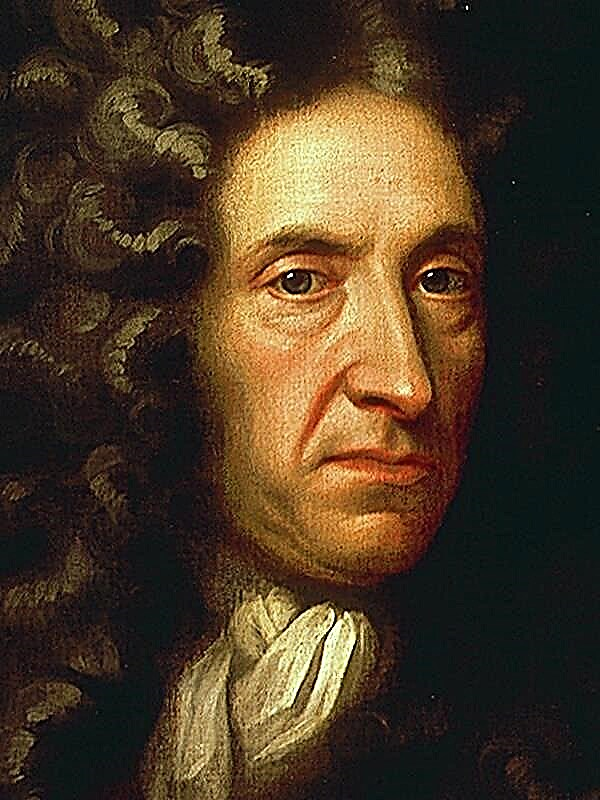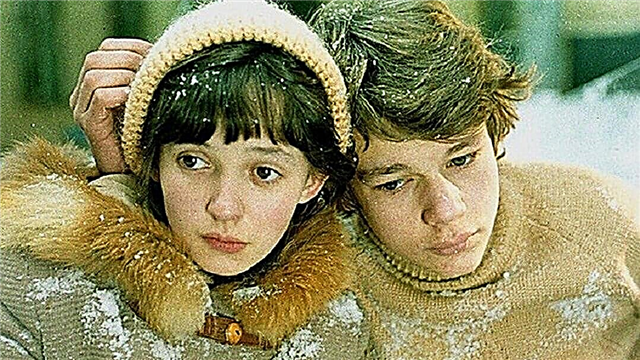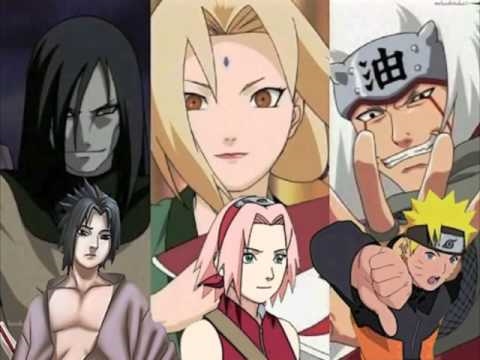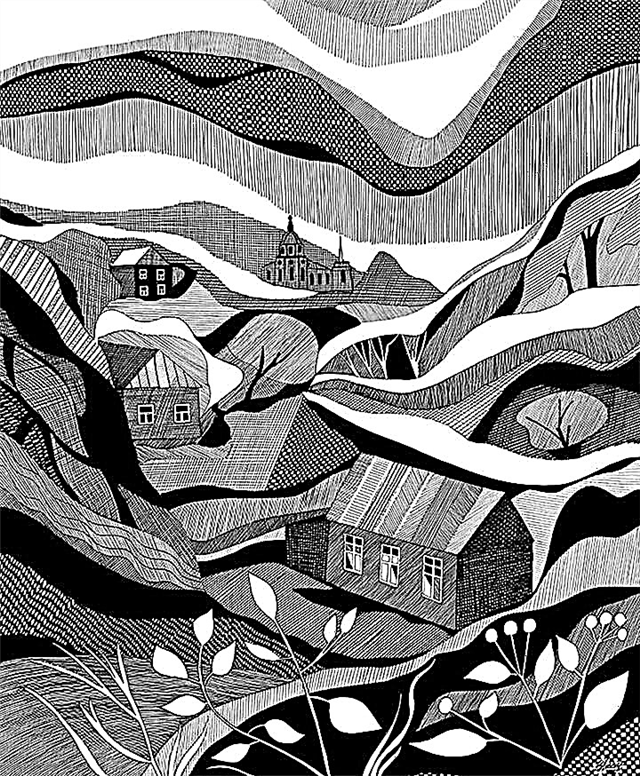Octopus is a work about the life and struggle for the rights of farmers in the San Joaquin Valley, created on the basis of a real event - an armed clash between farmers and government officials in the Musselslaf district in 1880.
The poet Presley came from San Francisco to this fertile land, where vast fields of wheat are spread, not only to improve his health. He dreams of creating a great Song of the West, this line of romance, where new people settled - strong, courageous, passionate. He dreams of a “great Song”, which will cover the whole era, the voice of the whole nation - its legends, its folklore, struggle and hopes. And the constant talk of valley farmers about tariffs for transporting wheat to the sea and about the prices for it Presley only annoying. In the picture of that huge romantic West, which is drawn in his imagination, the life of farmers with her worries bursts into a rude note, violating the harmony of his grandiose plan, carrying with it something “material, dirty, deadly vulgar”.
Presley tells himself that, being a particle of the people, he loves this people and shares all his hopes, fears and joy. But at the same time, the German farmer-tenant, the ever-complaining small tenant, Gouven, dirty, sweaty and limited, outrages him. Gouwen leases land from large farmer Magnus Derrick, in whose house Presley lives. And often traveling around the horse or bypassing the possessions of Derrick and his neighboring farmers Anikster, Broderson, Osterman and others, looking at the vast expanses of this blessed land, Presley experiences a sense of indestructible peace, silence, serene happiness and security. But once, by the discord, a scene of the death of sheep bursts into his dreams, which were crushed by a steam engine racing at full speed. Presley's sense of serene peace and security disappears. Now it seems to him that this racing monster of steel and steam with the only fiery eye like the Cyclops is a symbol of tremendous power, great and terrible, thundering through the thunder all the space of the valley, carrying blood and destruction in its path. This is a monster with steel tentacles, soulless force with an iron heart - a giant, colossus, octopus.
Such paintings, again and again disturbing peace and contentment, will be found more than once in the narrative. For example, in the description of the festival on the occasion of the construction of a new barn near Anikster, when a cowboy Delany bursts into a crowd of happy guests on a horse, previously a worker on Anikster's farm, whom he unfairly fired. The shooting begins. Following this, farmers immediately received a notice that the railway board had appointed for sale the land on which their houses stood and on which they had been working for many years. The price of land is set at an average of twenty-five dollars per acre.
Hostile relations between farmers of the San Joaquin Valley and the railway have existed since ancient times. Many years ago, the US government gave the Pacific and Southwestern Railway corporation a bonus for laying part of the land on both sides of the road. The railway issued a series of brochures and circulars on the provision of rich land to settlers in Tulare County. It was promised that when selling land to such settlers, they would give preference to all other people, and prices would be set based on the cost of land at an average of two and a half dollars per acre. Magnus Derrick then took ten thousand acres of land, Anikster, Osterman and others - much less. From year to year they successfully managed, more than once raising the question of the purchase of this land before the leadership of the railway. But his representatives, represented by lawyer Roggles and agent-broker Berman, evaded the answer every time. The corporation consistently and ruthlessly conducted its policy. First, the tariff for transporting goods to the sea was increased. At the same time, not only large, but also small producers should have suffered, for which this meant ruin. Characteristic in this respect is the story of the former Dyke engine. He was fired, offering to switch to a lower-paid job, and he refused. To feed his family, he begins breeding hops, laying his house and land at Berman. But the hop tariff rises from two to five cents per pound depending on the cost, not the weight of the cargo, and Dyke goes broke. Under the influence of the anarchist Caraher, he decides to take revenge and rob the mail car, killing the conductor, but taking only five thousand dollars - the amount for which the road management has deceived him. The hungry and exhausted Dyke is finally overtaken by the pursuers - he faces life imprisonment.
farmers, having lost the case of a reduction in tariffs in the California Railroad Commission, decide at a meeting with Magnus Derrick to choose their people in the new commission. Magnus Derrick, it would seem, is an incorruptible person and strict rules, but the player in the shower, after long hesitation, becomes the head of the union of farmers who oppose the rule of the railway. He has to secretly bribe two delegates to the congress of farmers, where members of the commission are elected, secretly from everyone except Anikster and Osterman. At the suggestion of the farmers, the commission also includes Magnus's eldest son, Liman, a well-known San Francisco lawyer. The scene in Lyman Derrick’s office is memorized when he looks at the new official California rail map. All of it is mottled with an extensive complex network of red lines - against a white background, different parts of the state, its cities and towns were entangled in the tentacles of this huge organism. It seemed that the blood of the whole state was sucked to the drop and against the pale background the red arteries of the monster swelled up to the limit, leaving into unlimited space - some kind of growth, a giant parasite on the body of the whole state,
However, Lyman Derrick has long been bribed by the board of the railroad, which promised him support in the election of state governors. At a meeting of the commission, as if in a mockery of the aspirations of farmers, the tariff for transporting wheat was reduced only for those places in the state where it is not grown. The farmers lose again, and Magnus expels from his house Lyman, who acted as a traitor. To top it off, the editor of the local newspaper Mercury finds out about the bribes that Magnus gave, and he faces a revelation if he does not give the editor ten thousand dollars to expand the newspaper. Magnus gives everything he has.
Farmers continue to fight and appeal to the San Francisco court, which ruled against them, confirming that the land is owned by the railroad. Soon comes the bloody denouement.
To execute the court decision, the sheriff arrives in the San Joaquin Valley at the most successful moment when the farmers are not at home - they organize a raid on rabbits that spoil the crops. The author paints an impressive picture (and symbolic at the same time) of this raid, when the carts of farmers surround the rabbits huddling together, then the beating begins. And at that moment, a rumor sweeps that the sheriff is embarking on the seizure of farm land. Accompanied by a detachment of mounted police officers, he ruins Anikster's estate and meets with a group of armed farmers. However, there are very few of them - Magnus Derrick, his youngest son Garan, Anikster, Osterman and some others, instead of the supposed six hundred people there are only nine.
The rest did not join, hesitated, scared. The risk of taking up arms is too great, although the board of the railroad had a great time with them, the author writes. These people believe that now it is most important to convene a meeting of the executive committee of the farmers union.
Meanwhile, Magnus Derrick, desiring to avoid bloodshed, is sent to the sheriff for negotiations, and the rest take up a position in the dry irrigation canal serving as a trench. Negotiations end to no avail - the sheriff only does his duty. Presley was with Magnus all this time, watching over the horses. But he went out onto the road and saw Anikster and other farmers being killed in a shootout. Crowds of people gather at the scene who don’t really understand what happened,
In the views of Presley by that time there was a sharp change. The epic poem about the West is postponed, and the social poem “Workers” was born. She became an expression of Presley's thoughts on the social reconstruction of society. The tragic fate of Dyke, the increase in tariffs, the speech of the anarchist Karacher that the railway trust is afraid only of people with dynamite in their hands - all this influenced the poet. “The people inspired you,” says the shepherd Vanami, a friend of Presley, “and let your poem go to the people ...“ Workers ”should be read by workers. The poem must be simple so that the masses understand it. You cannot look down upon the people if you want your voice to be heard. ” The poem proves to be very popular, and this puts Presley at a loss. But now he wants to appeal to the whole nation and talk about the drama in the San Joaquin Valley - maybe this will serve the common good. Indeed, other states have their own oppressors and their own "octopuses." Presley wants to declare himself a defender of the people in the fight against the trusts, a martyr in the name of freedom. Although he is more a dreamer than a man of action.
Now, after the death of his farmer friends, Presley gives a hot and excited speech at a mass rally in the city theater of Bonville. “We are in their hands, these our exploiting owners, our family centers in their hands, our legislative bodies in their hands. We have nowhere to go from them, ”Presley said at the rally. - Freedom is not a gift from the gods. Freedom is not given to those who only ask for it. She is a child of the people, born in the heat of struggle, in mortal torment, she is washed with blood, she carries with her the smell of powder smoke. And she will not be a goddess, but a fury, a terrible figure, equally destroying the enemy and friend, furious, insatiable, ruthless - red terror. "
And although loud applause was heard after Presley's speech, he realized that he was not able to fully penetrate the hearts of his listeners. The people did not understand, did not believe that Presley could be useful to him.
Hardly experiencing what happened, Presley took the distress of farmers as a personal tragedy. After all, farmers until the last moment hoped that the law would be on their side, they believed that they would find the truth in the United States Supreme Court. But this court decided the case in favor of the railway. Now all farmers will certainly have to leave their farms. They were given only two weeks of delay.
Under the influence of Karaher Presley goes on a desperate act. He throws a bomb at Berman's house, but unsuccessfully: the enemy has survived.
Then Presley sets off in search of the family of the deceased tenant, Gwen.
Wandering around San Francisco, Presley stops in front of the huge headquarters building of the Pacific and Southwest Railway. This is the citadel of the enemy, the center of the entire vast system of arteries along which the vital juices of the entire state were pumped; the center of the web, in which so many lives are entangled, so many human destinies. And here the owner himself sits, the all-powerful Shelgrim, Presley thinks. He is seventy years old and still working. “This is the life force of the cannibal,” decides Presley. But in front of him is a man of great mind, versed not only in finance, but also in art. “Railways are built by themselves,” Teaches Shelgrim Presley. - Wheat grows on its own. Wheat is one force, the railway is another. The law to which they obey is the law of supply and demand. People play an insignificant role in all this. She must blame the conditions, not the people, concludes Shelgrim. - And nothing depends on me. "I can not subordinate the railway to my will ... Who can stop the growth of wheat?"
So, Presley thinks, one cannot blame anyone for the horrors that occurred at the irrigation canal ... So, Nature is only a gigantic Machine, which knows neither regret nor forgiveness ...
In this mood, a frustrated and exhausted Presley is trying to find Gouwen's family. He knew that after Gouven’s funeral, his wife and two daughters, little Guild and the beautiful Minna, had left for San Francisco, hoping to find work there. But in a big city, these rural residents were in a difficult situation. The money soon ran out, the owner of the furnished rooms kicked them out, and Minna, having lost her mother and sister, was forced after several days of searching, when she literally had no crumbs in her mouth, to accept the offer of the hostess of the brothel. And Mrs. Gouven simply died of starvation in some wasteland. Little Guild was picked up by one compassionate woman. When Presley accidentally met Minna on the street in a new silk dress and hat, put on a little to one side, he realized that his help was late. “I hit the line in the teeth,” Minna says of herself.
And Presley again goes to the San Joaquin Valley, for the last time to see those of his friends who are still alive.
But the “golden” crop, which had not been here for a long time, was not ripe for them. At Derrick Manor, paths are overgrown with weed. Now the broker Berman is hosting here. This he got a huge possession of Magnus, about which he had dreamed for a long time. And the railway set a special reduced rate for Berman to transport wheat to the sea.
Magnus Derrick and his wife are about to leave their nest. Mrs. Derrick, again, should again become a music teacher in the city of Marysville, where her former position in high school was vacant. Perhaps this will be their only source of subsistence. After all, Magnus Derrick is now just a relaxed and poorly thinking old man. Berman mockingly offers him to become a weigher at the local freight station and go to the side of the railway, do what they are ordered to do.
Presley, who was present at this conversation, is unable to continue to observe the depth of the fall to which Magnus reached. He hurries off the Derrick Manor and heads for Anikster Manor. Dead peace hung over it, and at a broken gate on a tree a plate was nailed with an inscription that passage and passage were strictly forbidden here.
In the San Joaquin Valley, Presley expects another, apparently last meeting with his old friend Vanami. This shepherd, resembling a seer from biblical legends, can be assumed to be the bearer of the author's philosophy. It is interesting because, as we would say now, it has the gift of a parapsychologist and can act on the consciousness of people who are at a distance from him. Presley experienced this more than once when, as if some unknown force forced him to head to the place where Vanami was. He is also interesting because, according to the author, Vanami comprehended the essence of some global phenomena. We need to look at everything that happens, says Vanami, from a huge summit of humanity, from the point of view of "the greatest good for the greatest number of people." And if a person has a broad outlook on life, then he will understand that it is not evil, but good that triumphs in the end. And so Berman is drowning in a stream of wheat streaming down on him in the hold of the ship, which is now carrying his wheat starving in India.
But what is that full circle of life, only a part of which he, Presley, saw and about which Vanami spoke? So Presley thinks, heading on the same ship to India. Farmers have suffered in the struggle between farmers and the railway, Presley continues to argue, and Shelgrim may be right that, rather, the forces, not the people, closed their horns in a terrible struggle. People are just midges in the rays of the hot sun, they perished, killed in the prime of life. But wheat remained - a mighty world power, the nurse of nations.She is shrouded in peace of nirvana, indifferent to human joys and sorrows. Out of the struggle of forces, good arises. Anikster dies, but starving people in India get bread. Man suffers, but humanity is moving forward.


